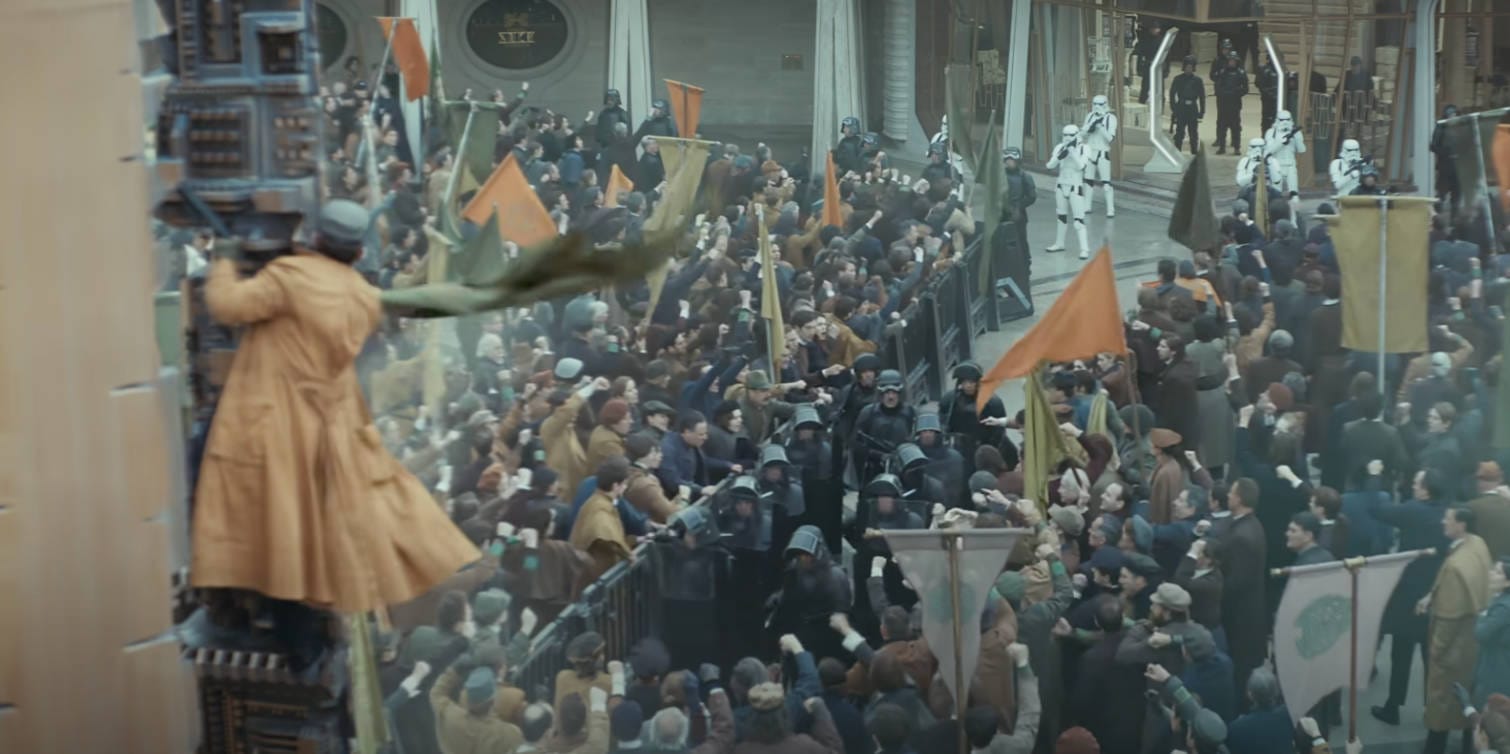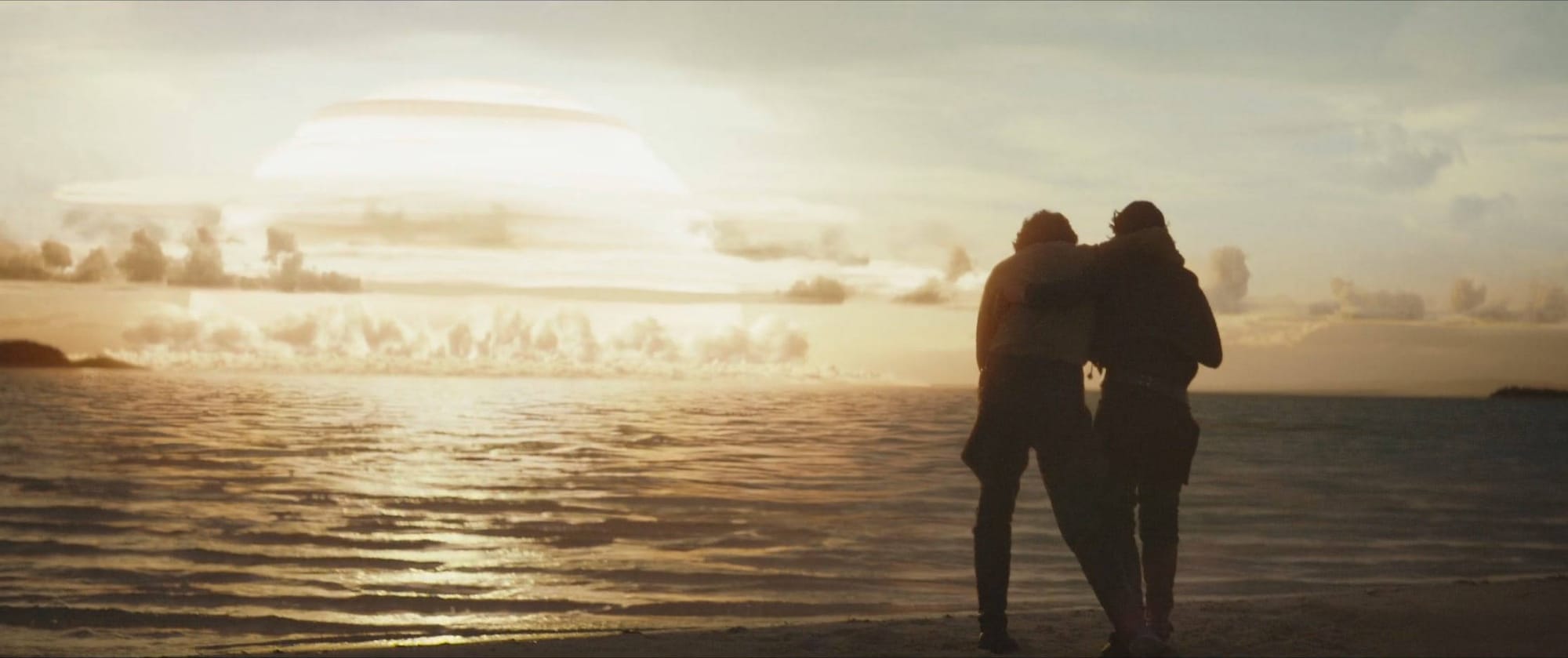When have you done enough for the revolution?

"Revolutions are built on hope" - Thela, Andor Season 2 Episode 8
In the world of Star Wars, the above quote is originally said multiple times in the movie Rogue One, but this week, in the episodes of Andor, we learned where it originated. The situation it's said in is harrowing and uncomfortably realistic. The Ghorman genocide is an event that occurs because the planet Ghorman has a mineral that the Empire wants, but extracting it would render the planet unlivable.
In the world of colonialism this isn't a new story, but it hits close to home for me. In Vancouver, Canada, there was a decade long effort by the colonial government to run a pipeline through the Wetʼsuwetʼen nation that would result in a level of environmental damage that would render ancestral homes unlivable.
I would no longer say I'm as connected to any sort of resistance as I was then, but (what feels like forever ago) there was a time when I would drive people to and from the protests to stop or slow the process of building it. I remember friends being arrested. Mostly, it was a time in my life where I remember feeling stressed about trying to balance my personal life with an academic one with support systems that were laughable compared to what they are now.
In the interim of then and now I got a lot better at setting limits for myself, not burning out, and balancing both work and personal. I have loved ones that support me when I ask - and when I don't. I have turned the bumps along the way into lessons that I've shared, which I'm told have helped others in hard times. I feel a deeper connection to community.
When I was most involved in activism, I had an anxiety that kept asking "am I doing enough?" because it always felt like there was more to do. Truthfully, there is more to do. There will always be more to do. It's the love from my community and deeper connections that have quieted that anxiety, because it was, ironically, an anxiety that stemmed from individualist thinking.
Nowadays my involvement is quieter and it is up to me to trust that what I am doing is unique to what I can do. That is, I don't need to expect myself to do the same type of work as others and doing so would be misguided and harmful. Expecting uniformity in action, expecting equal contribution, expecting equal output. These expectations stem from capitalism where our worth is dictated by our labour through comparison.
There are a lot of ways to do activist work but there is a mentality in some activist spaces that there is a "right" way to be doing the work. Thankfully, I've found myself in spaces that are more aligned with the idea that parallel and complimentary participation is the better route. When we set our own paths we can pay better attention to where others want to go and support them in getting there without trying to follow along.
In these episodes of Andor, we see members of the rebellion go in different directions. At the end of an episode the character Cassian Andor drives away from streets that are still ablaze, not for lack of caring about the rebellion but rather because of it. He listens to the radio of his comrades calling for help, but it's a help he can't offer and that he knows won't come due to the Empire jamming communications. He accepts this fate and continues on to do what he can instead: to tell others what happened.
In the next mission he is sent to save the outspoken government senator (and well known Star Wars character) Mon Mothma who dares to speak out against the government and is the target for assassination as result. Afterwards, as the two have escaped we see how tired Cassian is as he tells his partner, Bix, "I'm done. I'm not doing it anymore. I've done what I can. And I've done a lot, but... but I want... this."
To his credit, he has done a lot. But as I watched this, I thought, where is the line that justifies walking away? When have you done enough for the revolution? Cassian has lost his home and loved ones, he's gone into dangerous situations, and he's recruited people into the rebellion. I can't imagine someone saying he hasn't done enough, but how do we know when we have? Is it measured in loss? Heartbreak? Time?
I think it's an interesting question, specifically because it's one that gets insinuated in real activist circles. People tend to start expecting more and more from themselves and each other. It's an evocative question but a flawed one. Why are we measuring in the first place? What are we fighting for if not a world where no part is too small? Those who lead revolutions are not fit to rule by virtue of leading, unless we want to end up right where we started because it is the question of "who has done the most?" that is the problem.
Of course, this isn't to say we should do nothing. Rather to put words to what I've seen, when people's energy ebbs and flows. There is a culture of expecting to push oneself, even if no one asks, that I've seen replicated in activist work. This is even a problem among disabled communities I've been in, where comparison to others is known to be an issue and yet the feeling of needing to prove ourselves is so pervasive we don't realize we've burned out until it's too late - we work until we literally can't. I want to embody a future that discourages this.
This might just be the anarchist in me, but I want a revolution that trusts that people will be around to do the work that should get done, not the work that we're told to get done. I've felt what it's like to be trusted in that way and it makes me want to give it to others. It's cheesy to say, but I believe the answers we need are in our communities. The time and love we share. Our patience and curiosity. Our moments of bold empathy when we are tempted on a path of apathy.
When conflict amongst community members arises, we must engage with it, lean in with empathy. Avoiding discussions (and relationships) we know will include conflict is product of colonial individualism, and I would rather lean into a type of agonism that is encased in care. I like to think practising this would bring people together and even help practice empathy for when larger conflicts occur.

As far as Star Wars, we already know Cassian Andor's fate from Rogue One. It's the reason there is a show that centres him in the first place. In our world, his name is carved on the story. We only learn about those who give their lives along the way because they are along his path. But this is a show made in a culture that rewards individual achievement and even if the show asks good questions and explores topics that are deeply relevant and necessary, the medium sets limitations to the stories can tell.
After Cassian tells Bix that he is tired and he wants to live quietly with her, we watch Bix leave while he is asleep. Not because she does not want that, but because she knows he does not want that, and refuses to be the reason he stops doing the work she knows he is passionate about. I like to think she chose a path for herself as much as him. Even though it isn't the easiest choice to choose divergent paths, trying to force themselves to walk the same path would have made them both miserable.
Back in our world, I still sometimes hear the voice "I'm not doing enough" but I remind myself that my path hasn't been walked yet and I can't try and replicate the path of others, only be inspired by it. I know I am doing as much as I should be and hope it is enough. All I can do is hope, but I think that's enough.

